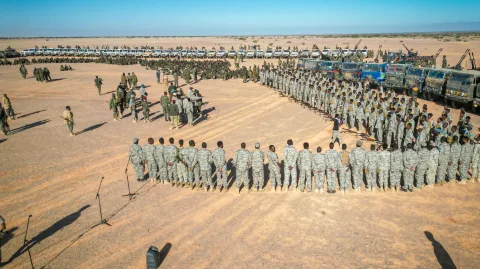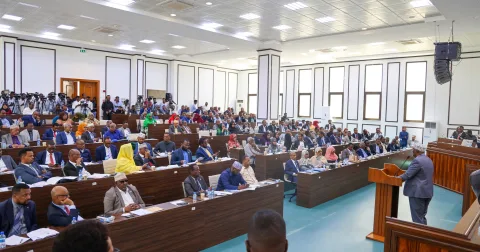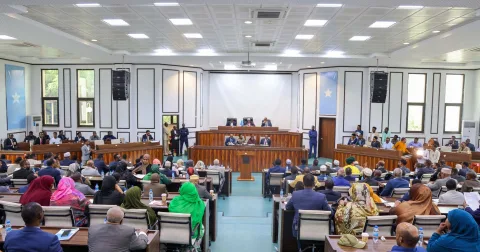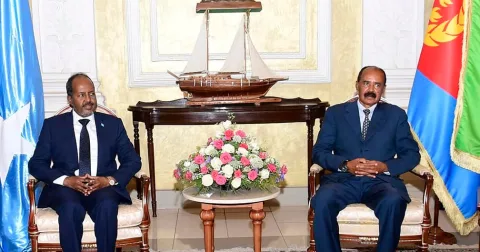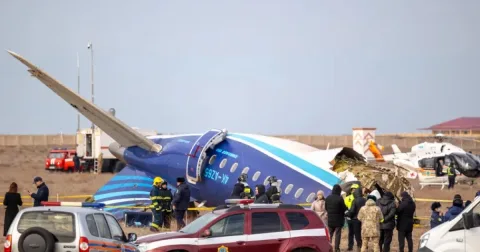NEWS RELEASE EU, Austria and UN Food Agencies Are Backing Landmark Initiative For the first time,…
NEWS RELEASE

EU, Austria and UN Food Agencies Are Backing Landmark Initiative
For the first time, Somali farmers are turning themselves into suppliers of high-quality food assistance for their fellow Somali people.
A new initiative backed by the European Union, the government of Austria and two United Nations food security agencies has helped Somali farmers achieve this major agricultural breakthrough in a region of the country that was gripped by famine less than three years ago.
With the support of the EU and the UN Food and Agriculture Organization (FAO), small-scale farmers in south-central Somalia have boosted the yields and quality of their maize grains, allowing them to sell 200 metric tons of high-quality maize to the UN’s World Food Programme (WFP), which purchased the grain with funds supplied by Austria. The food assistance will be provided to people working to build and restore community infrastructure in WFP food-for-asset projects.
Agricultural communities – especially in south-central Somalia, the country’s grain basket – have, over the last two decades, been severely affected by conflict and recurrent drought, which has resulted in the widespread failure of crops and poor yields. The EU, Austria, FAO and WFP are working with local farmers to change that.
“The EU strongly supports this pilot initiative to empower the Somali farmers and their markets,” said Michele Cervone d’Urso, the EU Ambassador to Somalia. “By enabling them to provide food assistance for Somalia, we support the entire Somali economy.”
“This initiative shows that Somali farmers are not helpless. With minimal assistance including agricultural inputs, tools, technical skills in storage, grading and marketing, they can make a great difference,” said Luca Alinovi, FAO’s outgoing representative for Somalia.
WFP Country Representative Stefano Porretti described the initiative “as a significant achievement for the participating farmers” and a milestone for WFP’s operations in Somalia.
“Strengthening livelihoods and increasing resiliency is an integral part of WFP’s strategy in Somalia,” Porretti added. “WFP will continue to support small-scale farmers in Somalia by empowering them to produce and sell more food, so as to become competitive players in local markets.”
The Austrian embassy in Nairobi, which also covers Somalia, said that Austria, as one of the partners and sponsors of this project, was delighted that this valuable initiative had been such a success. It further added that it was another example that people in need, given the necessary assistance and possibilities, are able to help themselves and thus make a difference to their lives.
For over 12 months, experts from the FAO and WFP, supported by the EU, have worked with dozens of farmers in several communities to train them in post-harvest handling, storage and warehouse management in order to increase the quality of their production and limit losses by keeping the grain free of contamination and pests. Farmers also learned how to grade their grain. These new skills are aimed at increasing the quality of their produce.
Now they are able to produce maize that meets international quality standards in sufficient quantities to sell it to WFP, which will use the locally grown grain in its food assistance programmes for the most vulnerable and food-insecure Somalis.
According to food production data, Somali farmers only meet 40 percent of the country’s domestic cereal demand. FAO and WFP will jointly seek to scale up this initiative to ensure that small scale farmers have better opportunities to access agricultural markets, to become competitive players in domestic and international food trade and thus to improve their lives.
Sustained humanitarian interventions as well as successive seasons of near-average to above-average rainfall in most parts of Somalia have significantly reduced the number of people experiencing severe food shortages in parts of the country from a peak of 4 million during the 2011 drought and famine. However, the latest assessment findings from FAO’s Food Security and Nutrition Analysis Unit indicate 860,000 people are facing acute food security crisis and 203,000 children under the age of 5 are acutely malnourished.
The EU is engaged in Somalia through a wide range of assistance measures that include development programmes, active diplomacy, EU staffed missions and operations in support of rule of law and security, and humanitarian assistance.
FAO leads international efforts to defeat hunger. It helps countries to modernize and improve agriculture, forestry and fisheries practices and ensure good nutrition for all. FAO focuses special attention on developing rural areas, home to 70 percent of the world’s poor and hungry people.
WFP is the world’s largest humanitarian agency fighting hunger worldwide. On average, WFP reaches more than 90 million people with food assistance in 80 countries each year.
Source: @SomaliaEU and @FAOinSomalia and @WFPSomalia
HORSEED MEDIA – SOMALI NEWS 2014
